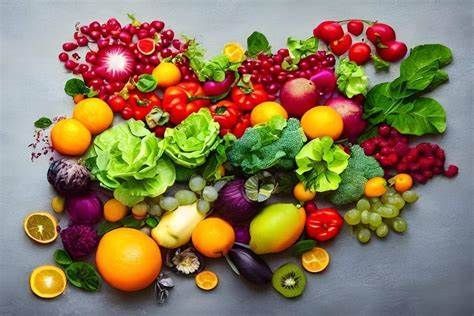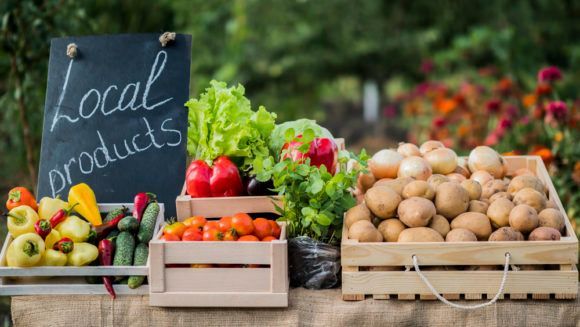Why You Should Buy Organic: A Healthier, Sustainable Choice for You and the Planet
Why You Should Buy Organic: A Healthier, Sustainable Choice for You and the Planet

Consumers today are more concerned with the quality of their food and the methods that were used to produce it. Due to this, interest in organic food has increased. Nevertheless, choosing organic food is not just a passing trend; it’s a conscious decision to prioritize your health, support sustainable farming, and protect the environment.
What does
organic mean?
According to usda.gov, organic food is considered these things:
- “Produce can be called organic if it’s certified to have grown on soil that had no prohibited substances applied for three years prior to harvest. Prohibited substances include most synthetic fertilizers and pesticides.”
- “As for organic meat, regulations require that animals are raised in living conditions accommodating their natural behaviors (like the ability to graze on pasture), fed 100% organic feed and forage, and not administered antibiotics or hormones.”
- “Regulations prohibit organically processed foods from containing artificial preservatives, colors, or flavors and require that their ingredients are organic, with some minor exceptions.”
- “When packaged products indicate they are “made with organic [specific ingredient or food group],” this means they contain at least 70% organically produced ingredients. The remaining non-organic ingredients are produced without using prohibited practices (genetic engineering, for example) but can include substances that would not otherwise be allowed in 100% organic products.”
Why choose organic?
There are a large number of reasons why purchasing organic food is a great decision. From health quality to environmental wellbeing, organic food provides a lot of positives for the consumer. So why should you buy organic?
Health
Organic food is grown without synthetic pesticides, herbicides, and chemical fertilizers, which means fewer harmful residues on your plate. Additionally, organic farming prohibits the use of genetically modified organisms (GMOs), giving you more confidence in the purity and safety of your food. By investing in organic food, you are investing in a cleaner diet.
Environment
Organic farming practices prioritize sustainability by focusing on soil health, biodiversity, and ecological balance. By avoiding synthetic chemicals and adopting natural farming methods such as crop rotation and composting, organic farms help preserve water quality, reduce soil erosion, and minimize water and air pollution. Choosing organic food supports these eco-friendly practices and helps reduce your carbon footprint.
Nutrition
Studies show that there are more nutritional benefits to the consumption of organic foods when compared to foods grown using conventional processes. Data suggests that organic produce contains higher levels of essential nutrients such as antioxidants, vitamins, and minerals compared to conventionally grown produce. According to an article published to nih.gov, “Reviews of multiple studies show that organic varieties do provide significantly greater levels of vitamin C, iron, magnesium, and phosphorus than non-organic varieties of the same foods....In addition, with the exception of wheat, oats, and wine, organic foods typically provide greater levels of a number of important antioxidant phytochemicals.”
Sustainability
By choosing organic food, you are supporting a farming system that values sustainability and long-term agricultural health. The lack of pesticides used in organic farming, and the wider variety of plants farmed, enhances biodiversity. These practices also result in higher soil quality and a reduction in pollution from fertilizer and/or pesticide run-off. Rodale Institute and British Ecological Society, Journal of Applied Ecology shows that organic farms use 45 percent less energy, release 40 percent less carbon emissions, and foster 30 percent more biodiversity when compared to conventional farming. This approach helps sustain farming for future generations while preserving biodiversity and local ecosystems.
Support Local
Many organic products can be sourced from local farmers who prioritize sustainable practices. By purchasing local organic food, you are investing in your local economy and helping small-scale farmers thrive. This fosters community connections and promotes a more resilient food system.
The Acres Home Chamber Farmers Market is a community-driven market designed to increase the community's access to fresh food and healthy living. This bi-weekly market brings together local farmers, artisans, and small businesses to offer fresh produce, handmade goods, and more. Visit the market every 1st and 3rd Saturday at The Acres Home Chamber for Business and Economic Development, Inc.
Written By Kirstin Vaughn


